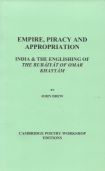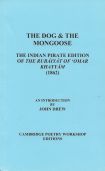The Englishing of ‘Omar Khayyám. John Drew
The Daily Star, 9-12-2017
Summary:
Drew points out that there is an Indian connection in the history of the Rubaiyat’s rise to fame, and that is the pirate Madras edition, produced by Whitley Stokes, a Dubliner who, unable to find work in London, sailed for Madras and evidently took a copy of the Rubáiyát with him. Once in Madras, Stokes met up with Thomas Evans Bell, a dissident army officer who was Hon. Sec. of the Madras Literary Society, and together they printed (anonymously) a pirate edition of the Rubáiyát. It not only reproduced Fitzgerald’s translations of Omar’s rubáiyát but also 32 by Cowell (published in the Calcutta Review, 1858), 10 in French by Garcin de Tassy and 15 versions by Stokes himself. Drew also compares some quatrains from the three translations.

